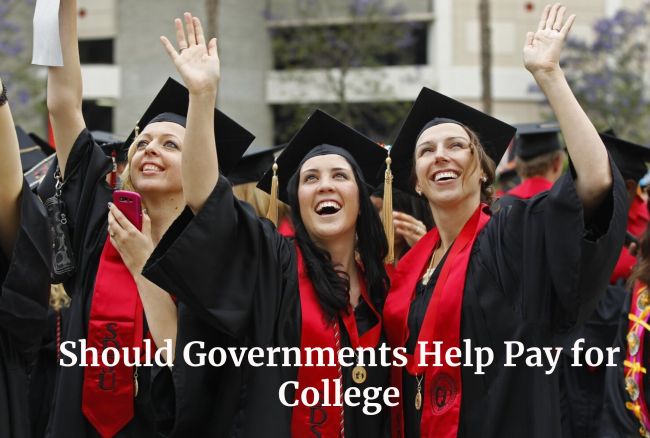Should governments help pay for college? Not only in education, but also in economics, this is a controversial issue. It would be a dream come true for most adults returning to college if they could obtain a government-subsidized education.
It is possible, however, that students fresh out of high school might not realize the benefits of government-funded classes and may incur unnecessary expenses.
Should Governments Help Pay for College in the 21st Century?
Education is the only means of maintaining a technological and developmental advantage over other nations. Higher education leads to higher salaries and more opportunities. A state university costs on average $87,000 to $115,000 for four years of higher education.
Those figures are based on 2006 estimates; the cost of graduate programs continues to rise every year.
Yes, the Government Should Offset the Cost of College
Initially, taxpayers would bear the burden, but government support of a college education can help eliminate welfare dependency. As well as reducing family poverty, it can also reduce poverty associated with class.
College is typically attended by the children of college graduates. Without parents who are themselves college graduates, the average family cannot afford the constantly rising cost of college.
Convicted criminals who undergo rehabilitation in prison, earn high school and college degrees, and may even graduate law school while in prison receive taxpayer support for their education. Shouldn’t the government pay for the education of people who have never committed a crime if it can pay for a criminal’s education?

No, the Government Shouldn’t Pay for College
It takes a family and community to create the right conditions for students to go to college. There are numerous scholarship opportunities, grants, and student loans available. It is also less likely for students who receive a free ride to value their education versus those who have to work for it.
Human nature is responsible for this unfortunate byproduct. Several self-made millionaires have made their fortunes without graduating high school or even college. A student’s desire to succeed is what drives them, and college is just another tool in their toolbox.
It is possible for the government to pay for education and then test students to determine what their best options are for a career. Turning over a person’s future for a college tuition check is not necessarily the plan that supports freedom of choice.
The Government Already Pays for College
The United States government already pays for college for students who enlist in the military and serve their country. In addition to military service, the G.I. Bill provides ample compensation to those who risk their lives to protect their country.
Other countries also provide government paychecks and subsidize education and more through government service. Many college students also receive financial assistance from government grant and loan programs.
It may not be optional to go to college, but it is a privilege that should be earned and should require sacrifice. One need only look at the public school system to see how easily the educational system is taken for granted.
In the future, when you wonder, “Should governments help pay for college?” hopefully you will have a better understanding of the issues involved.
